Health Minister Vili Beros: Covid Cost Croatia Almost 6 Billion Kuna
October 19, 2022 - Health minister Vili Beros said that the current epidemiological situation in Croatia is relatively stable and stated that the total cost of the coronavirus epidemic is close to six billion kuna.
As Index writes, while reporting to the parliament on the measures taken by Croatia against the covid-19 epidemic from January 1 to August 31, 2022, Beros pointed out that for the sixteenth day in a row, we have recorded a decrease in the number of newly infected people per day. The drop is significant and perhaps unexpected because the school year has already started, said Beroš, but he also warned that the epidemic is still around us and we must be careful.
He added that the majority of hospitalised patients are still completely unvaccinated citizens or vaccinated only with the primary vaccine, which indicates the need to increase the vaccination rate of citizens. He also presented the information that the Croatian Institute for Health Insurance paid almost six billion kuna from compulsory health insurance funds from the beginning of the epidemic until August 31.
"Although it is a large figure in financial terms, it is important to see that it cannot be considered a cost but an investment in the health and treatment of our citizens, which ultimately affects the performance of other sectors such as tourism and the economy," said the minister.
State Secretary Marija Bubas referred to the problematic statements in the media about vaccination, which certain opposition parties support. "Protests by various interest groups with their destructive messages have not caused any political damage to the government, but they are certainly causing damage to our citizens, who are still weighing out if they want to get vaccinated," she said.
To the opposition's criticism that Croatia has failed in the fight against the epidemic with regard to the mortality rate, Beros replied that statistics should take into account the demographic picture of the population, comorbidity, and the percentage of vaccinated people, which is still insufficient. The representatives were also interested in how many vaccines were ordered, how many were used, and how much it all cost.
9.7 million doses were acquired, 5.3 million doses were used, 4.4 million doses were unused, of which 1.1 million were donated, and 426 thousand doses were destroyed having had expired, the minister stated. Vaccination against the coronavirus will become lifelong, that is, constant, and it is necessary to keep buying new doses, said Beros. He did not provide an answer about how much it cost, pointing out that the vaccine saves lives and that the price is not important in that context. "The government will pay for everything necessary to provide Croatian citizens with adequate medical care, including the vaccine, so I won't tell you how much it costs; someone else will answer. We don't pay for it from the system; it is procured through joint procurement by the European Commission," he said.
The slogan should be changed from "get vaccinated, save others" to "get vaccinated, save the supplies," proposed Zvane Brumnic (Social Democrats). Beros also rejected Miro Bulj's (Most) claims that the Ministry of Health hides public purchases of medical equipment and vaccines like a snake its legs. "Everything is public and transparent, but there are elements such as the contract of the European Commission that do not allow us to communicate the price of the vaccine," he said.
For more, make sure to check out our dedicated Lifestyle section.
Croatia Registers 5,164 New COVID Cases, 50 Deaths
ZAGREB, 18 Feb 2022 - Croatia reported 5,164 new coronavirus cases on Friday, of the 9,052 tests taken in the past 24 hours, while 50 people have died as a consequence of the disease, the national COVID-19 crisis management team said.
Currently, there are 28,982 active cases in the country, including 1,837 hospitalized patients, 128 of whom are on ventilators while 16,535 are self-isolating.
Since the outbreak of the pandemic in Croatia, a total of 1,035,632 people have become infected, of whom 14,729 have died while 991,921 have recovered.
As of 17 February, a total of 5,174,701 doses of a vaccine have been administered and 56.77% of the total population or 67.53% of the adult population has been vaccinated.
A total of 2,303,772 people have received at least one dose of a vaccine while 2,223,417 people have been fully vaccinated, which is 65.32% of the adult population.
For all you need to know about coronavirus specific to Croatia, make sure to bookmark our dedicated section and select your preferred language if it isn't English.
Five Scientific Council Members Distance Themselves from Statements by Gordan Lauc
ZAGREB, 22 Oct 2021 - Five members of the government's Scientific Council on Friday distanced themselves from all statements made by Council member Gordan Lauc about the coronavirus pandemic, notably his latest messages that the pandemic is over and that only elderly people should get vaccinated.
"We fully distance ourselves from all statements about the pandemic made by Gordan Lauc since the summer of 2020," says the declaration signed by Andreja Ambriović Ristov, Petra Klepac, Branko Kolarić and academicians Nenad Ban and Igor Rudan.
They in particular distanced themselves from Lauc's messages in which he declared the pandemic over or claimed that there are circumstances in which it is better to get infected. Lauc downplays the effectiveness of the epidemiological measures and the need for their application, recommends vaccination only for persons above a certain age and insinuates a connection between the increased mortality rate in Croatia and vaccination, they said.
"Anyone who says that any one of us could agree with Gordan Lauc's statements about the pandemic is not telling the truth," the signatories said.
The five members of the Scientific Council said that "their views on the pandemic are based on the existing knowledge from relevant professions and constantly evolving scientific knowledge, which often requires changes and adjustments of the COVID-19 response strategy, which then need to be explained to the public."
"That is why a responsible interpretation of scientifically accepted knowledge is essential at any time during the pandemic in order to keep the public properly informed and to protect human lives and maintain the economic activity of Croatian citizens as much as possible," the declaration says.
Speaking in an interview with N1 television of his statement that the existing vaccines poorly protect against COVID-19, Lauc said that vaccination is not a mechanism to stop the spread of the virus, but that the vaccine provides excellent protection against serious forms of the virus. He said that he is a scientist whom the government has asked for an opinion, but that he is not a government employee and need not obey the government.
For more on politics, CLICK HERE.
Associations Say National COVID Team Unjust Towards Night Clubs, Bars
ZAGREB, 19 Sept, 2021 - The Voice of Entrepreneurs and the Night Clubs and Bars Association say it is pointless that night clubs and bars are not allowed to stay open after midnight and that this decision by the national COVID-19 crisis management team is unjust, notably now that almost all of the EU has lifted restrictions on them.
Night clubs and bars have paid the highest price of the pandemic, the two associations said in a press release on Sunday.
The national team is not considering allowing night clubs to stay open without restrictions, provided that COVID rules are complied with, as though they are the only ones to blame for the insufficient vaccination rate in Croatia and rise in infections, the statement said.
The associations said that if night clubs were allowed to operate indoors without restrictions, with the use of COVID certificates, that might encourage young people to get vaccinated.
By ignoring the constitutional right to work, the activity of night clubs and the hundreds of night club owners and their families are being marginalised, the press release said.
Despite the government's job-retention aid and compensation for fixed costs, night club and bar owners cannot avoid closures and bankruptcies, it added.
Every individual must take responsibility for their health, the associations said, adding that by not allowing night clubs and bars to work in order to protect people who refused to get vaccinated, the national COVID team was bringing into question the purpose of vaccination.
They said they had not worked for 18 months and asked Prime Minister Andrej Plenković to try and live nine months without pay.
They told the national team to immediately open night clubs and bars, provided that COVID rules were complied with, or take responsibility for the ruin of the entertainment industry.
For more on COVID-19, follow TCN's dedicated page.
For more about Croatia, CLICK HERE.
Ćorić: Vaccination Only Way We Can All Be Responsible
ZAGREB, 2 July 2021 - Minister of Economy and Sustainable Development Tomislav Ćorić said on Friday that vaccination is the only way we can all be responsible and that, if the tourism season fails, it will not be possible to find the necessary funding for all the needs in the years to come.
"Our economy is in the process of recovering, but it is highly dependant on tourism. If the tourism season fails, there is no magic wand with which we will be able to find additional funds to finance our needs, this year and in the years to come. That is why we all have to be responsible towards the country we live in and its economy, particularly to the most vulnerable groups of citizens. The only way for us to be responsible together is to be vaccinated," said Ćorić.
Asked about the possibility that entrepreneurs will have to be vaccinated if they are to receive aid, and whether this has been discussed with entrepreneurs, Ćorić said that that would be a responsible move.
Ćorić said that Croatia had the lowest percentage of inoculation of all Mediterranean countries.
"Anyone who is responsible should be rewarded and those who aren't should be subjected to criticism from the rest of us," he said. "Benefits should be linked to responsible behaviour above all."
Asked about the situation at the Brodosplit shipyard and whether workers should fear for their wages or dismissal, Ćorić said that the workers would fight for their rights.
"Brodosplit is a private company on the market. There are several companies within that conglomeration. According to information received, some of them have had their accounts blocked. Some of the problems are being resolved and I hope that Brodosplit, with more than 2,000 workers, will continue operating," he said.
The situation at Brodosplit is a reflection of the situation on the global market as many shipyards have lost ground to the competition, above all, China, he said.
"Want we want is that workers get their wages. That is what the government wants," Ćorić said.
He recalled that the government had bailed out shipbuilding for years through state guarantees on loans.
"One of the preconditions for guarantees was that all obligations to the Tax Administration had been settled," he underscored.
Ćorić was attending the EveryDayGreen campaign at the Rijeka farmer's market dedicated to reducing the use of plastic packaging.
The campaign is aimed at reducing the use of disposable plastic packaging and promoting the purchase of fresh produce on the occasion of Planet Day.
For more news, CLICK HERE
Pula Medical Faculty Dean and Anti-vaxxer Sacked
30 June 2021 – The Pula Medical Faculty Dean has been vocal against COVID19 vaccinations, often stating quite outlandish numbers and ideas. On Tuesday he officially lost his position at the school.
Dr. Kresimir Pavelic became known to the Croatian public just a few days ago as a passionate COVID19 vaccine skeptic. He spoke on the roundtable organised by political party Promijenimo Hrvatsku (eng. Let’s Change Croatia) entitled “Coronavirus – time for truth”. Dr. Pavelic stated some alarming figures the sources of which he didn’t mention. He said that the last four months saw more patients dying as a result of the COVID19 vaccine than those of all the vaccines combined since 1990. He also mentioned very suspicious numbers of 10000 dead in the EU and 4000 dead in the USA as a result of COVID vaccine complications. Slobodna Dalmacija reports Dr. Pavelic also warned that people who already had the vaccine are now potential carriers of new mutations of the virus and should be banned from donating blood. Supposedly, he has already talked earlier about the connection between COVID19 and Bill Gates.
Aftermath
On Tuesday the Medical College of Pula let him go from the position of the Dean. College rector, Dr. Alfio Barbieri said the move comes as a direct result of Dr. Pavelic’s public anti-vaccination statements. Apparently, this is not the first time he made his opinions on the matter known. He became quite popular with the so-called anti-vaxxers in Croatia.
This bizarre story doesn’t end here. Apparently, Pula Medical College is not really an active college. Rector Barbieri told Slobodna Dalmacija National Council for Science, Higher Education and Technological Development denied issuing a permit that would make his college’s educational program valid.
It seems the COVID pandemic revealed interesting viewpoints of many people around us. Stories like this one come hardly as a surprise anymore. Still, it is not every day that a person with such a high knowledge of health and medicine speaks out against COVID19 vaccines.
For more about COVID-19 in Croatia, follow TCN's dedicated page.
Veljko Ostojic: If COVID Passport Is Precondition for Traveling, It Is Discrimination
March 4, 2021 – Veljko Ostojic, director of the Croatian Tourism Association, was a guest on the Dobro Jutro, Hrvatska show, where he discussed COVID passports and vaccinations of tourist workers.
"First, we need to define what a COVID passport is. In my opinion, if it is a precondition for crossing the border, then it is discrimination. If it is a document that will allow those who have been vaccinated to cross the border faster and easier – I'm for it," Ostojic told HRT's Dobro Jutro, Hrvatska show.
Although it is not yet fully defined, the COVID passport should be given to those who have been vaccinated, those who have recovered, and those tested by PCR just before the trip, said Ostojic.
Asked whether entering Croatia will be similar to last year's, given that the vaccination will not be as expected, Ostojic said he hoped so. However, the priority goal for Croatia should be to "get green" as soon as possible. In that way, we could say that we are managing the epidemiological situation and that we are a safe country.
"Common European criteria for crossing the border should be defined, the epidemiological situation in our most important emitting markets should be monitored, from Germany, Austria onwards," says the Croatian Tourism Association director. He adds that it is still too early to talk about this topic because we still have a month, a month and a half.
Regarding the vaccination of tourist workers as a condition for the safe destination status, about which a promotional campaign was also launched, Veljko Ostojic says that tourist workers' vaccination will never be 100 percent. The Croatian Tourism Association conducted a survey with the Association of Hoteliers and the Croatian Camping Association. About 70 percent of employees expressed interest in vaccinations a month ago, Ostojic said.
There will likely be an organized vaccination of tourism workers after the first and second priority groups are vaccinated. We hope that it will be during April so that we can readily and vaccinated enter the primary tourist season, concluded Ostojić.
For the latest travel info, bookmark our main travel info article, which is updated daily.
Read the Croatian Travel Update in your language - now available in 24 languages.
Index: Cafe Terraces Open In Two Weeks If Numbers Stay Low
February 17, 2021 – Indoor sports return and cafe terraces open on Monday 1st March if infection numbers remain low, learns Croatian media outlet Index.
By the time spring arrives, Croatian coffee lovers should be back enjoying their drinks outside their favourite cafe bar. Cafe terraces open on Monday 1st March 2021 if Coronavirus infection numbers remain low and stay on their current trajectory, according to Croatia media outlet Index.
Indoor sports will also return on the same date, with the same stipulation that infection numbers remain low. Having cafe terraces open again cannot come too soon for frustrated business owners. At the moment, they are only permitted to serve coffee to go. According to Index, from on Monday 1st March 2021, cafe terraces open and people will no longer need to congregate on the street outside, in parks or on benches to enjoy their drinks.
“Measures should be further relaxed throughout Croatia as of March 1, including the much-anticipated opening of cafe terraces,” says the portal. Cafe terraces open and other relaxed measures depend on the prerequisite of figures remaining at the level they are at now. “The share of newly infected in the number tested in recent days is below five percent,” Index adds.
Headquarters and the government had already announced that the next round of concessions could be expected in early March.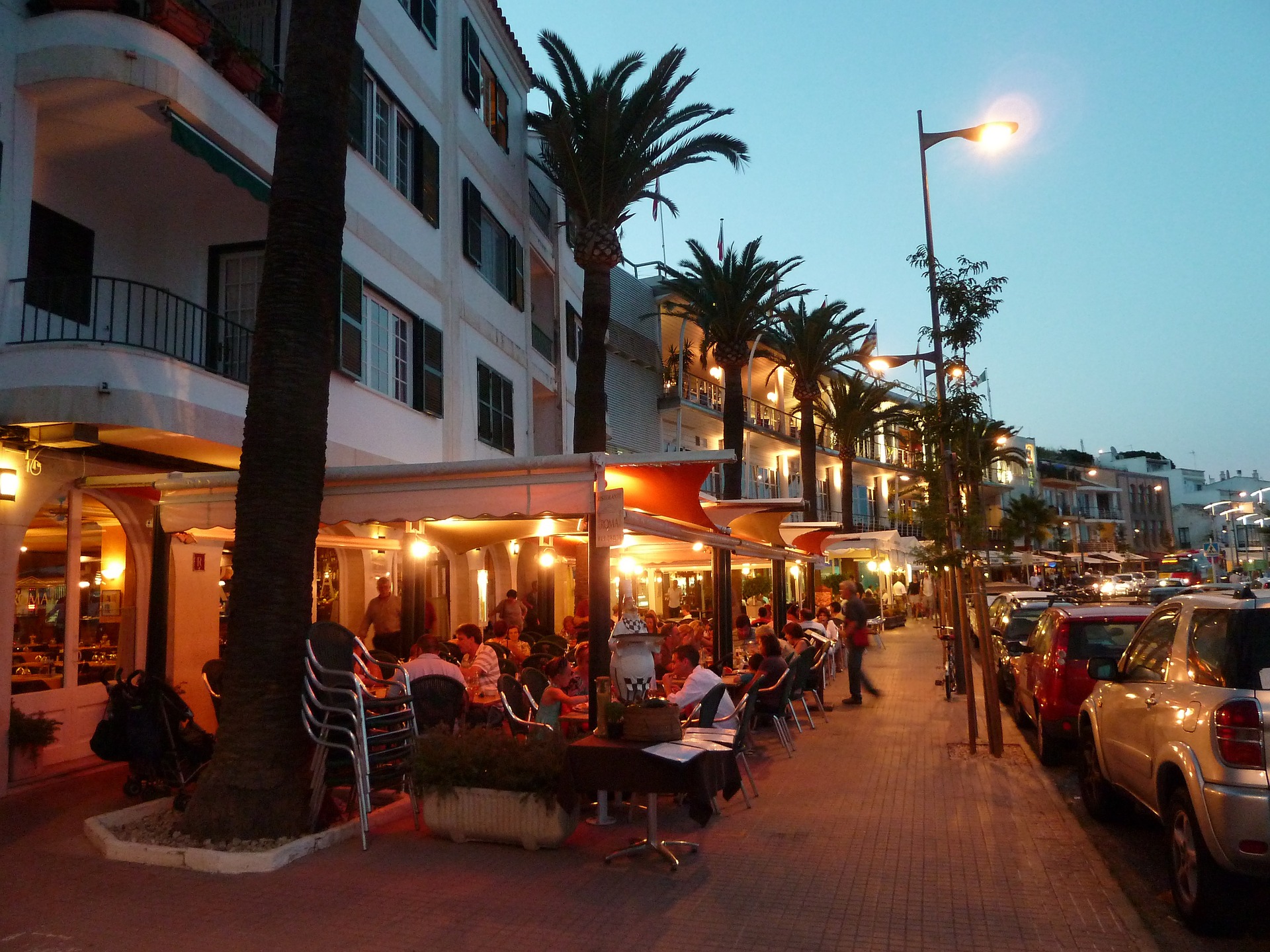 Cafe terraces open in Croatia from March 1st 2021, if Coronavirus numbers remain low, say media outlet Index
Cafe terraces open in Croatia from March 1st 2021, if Coronavirus numbers remain low, say media outlet Index
Croatian cafe terraces open, the interior of cafes and restaurants remain closed
“As we find out, the terraces of cafes and restaurants will definitely open on March 1,” wrote Index. “However, according to information from a source close to the Headquarters, the closed (interior) parts of cafes and restaurants will not be opened. (This) is realistically expected in April at the earliest.”
“Once cafe terraces open, guests will most likely not be able to enter the interiors of cafes and restaurants, except perhaps for the use of toilets, to prevent indoor parts of cafes and restaurants from being used and guests being served there. Closed spaces are still considered by headquarters (to be) an extremely high risk when it comes to the spread of coronavirus.”
Further relaxation of Coronavirus measures: Indoor sports to return
According to Index, although the first information received said that from March 1, only indoor sports for children would be opened, the portal has discovered that instead all indoor sports should be opened, with prescribed epidemiological measures. They remind that, according to current measures, only gyms, swimming pools and contactless individual ball sports are allowed.
Public gatherings / marketplaces / fairs
“There should be concessions when it comes to fairs, but it is not yet completely clear under what conditions,” says the portal. Like supermarkets, open-air and indoor markets are currently permitted to operate. The newly relaxed measures will pertain to similar, but more irregular events at which arts & crafts, books and other goods are on display for sale. The portal say that the vending and consumption of food – which is traditional at such events – will likely not be permitted for now.
“The headquarters is inclined to open fairs where products are sold or exhibited, but the consumption of food and drinks might be limited to prevent excessive gatherings and socializing,” they say.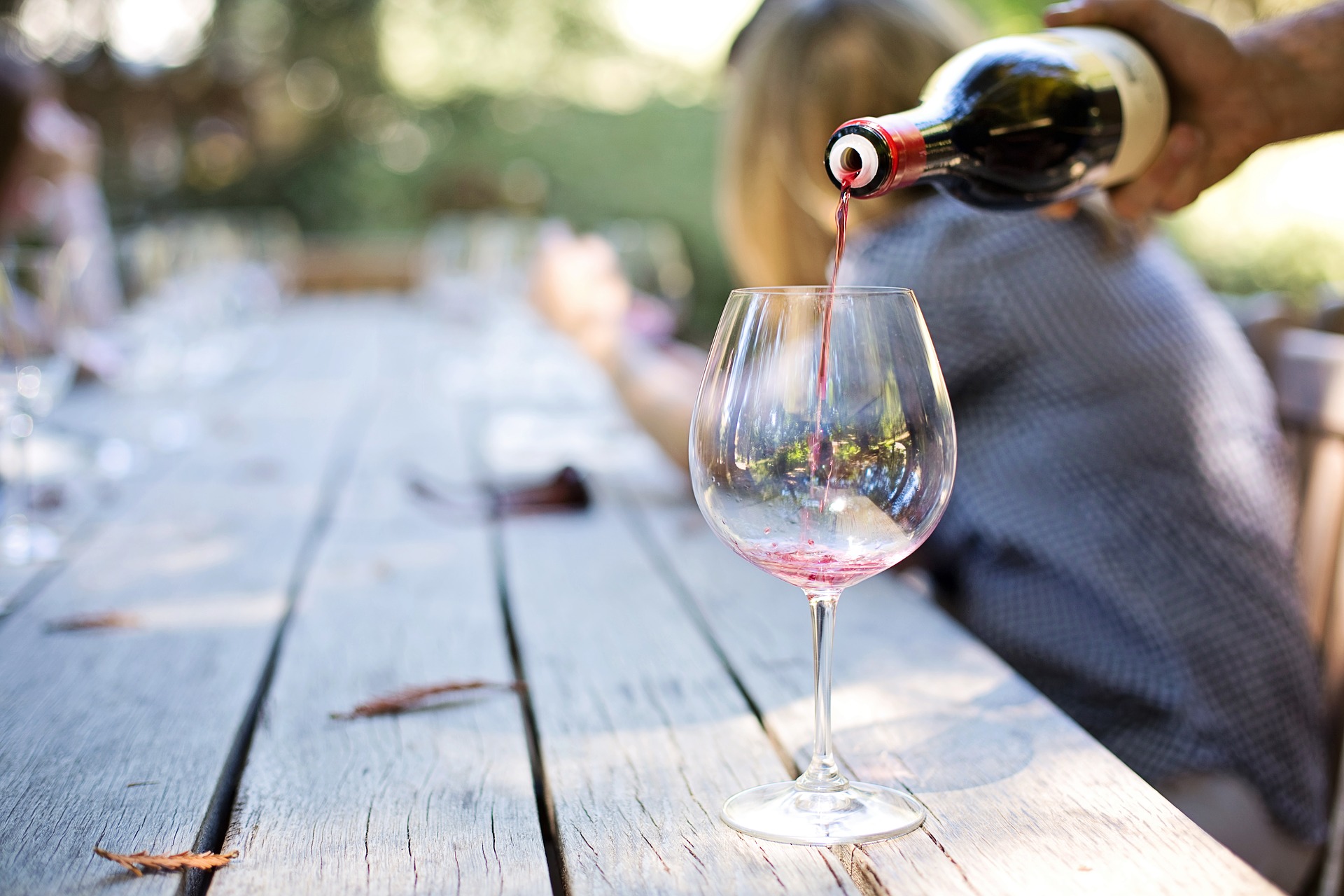
Relaxation of Coronavirus measures pertaining to private gatherings
“The allowed number of people at various gatherings should not change significantly, only minor corrections are possible,” claims the portal, adding that the current ban on the gathering of people from more than two households may instead be downgraded to a recommendation. The portal reminds that this measure has not been strictly enforced in any way before.
"To give way on March 1, the numbers have to stay at about the level they are now. But the pressure is great - no one wants to keep something closed that should not be kept closed. Most of it is already open, so there remains a narrow circle of what can still be given,” a source close to the Headquarters is quoted as telling Index.
Friction between regional and national authorities over easing of Covid-19 measures
Even if cafe terrace open on March 1st, Index concludes their article by reminding that a disparity between regional and national authorities is still causing some friction. The friction between two north-westerly regions of the country and national headquarters is specifically addressed.
“The Headquarters believes that the announcement of the Istrian Headquarters that they will open the terraces of cafes and restaurants on March 1 was very incorrect. They (national headquarters) say that this opening is planned at the level of the whole of Croatia anyway.”
“However, the decision of the Primorje-Gorski Kotar headquarters, which postponed the opening of bookmakers and casinos in that county, is perhaps even more critically commented on. The government states that the opening of bookmakers (betting shops) and casinos is a purely financial decision and ironically comments that if the Primorje-Gorski Kotar County wants to leave these facilities closed, they should (themselves) cover the costs that will be incurred,” says the Index article.
Index claims that these moves from Istria and Rijeka (Primorje-Gorski Kotar) are regarded in the National Headquarters and the government as politicking and that they are connected with the upcoming local elections.
For the latest travel info, bookmark our main travel info article, which is updated daily.
Read the Croatian Travel Update in your language - now available in 24 languages
Epidemiologist: At This Rate, Vaccination Goal Won't Be Met Until Autumn
February 9, 2021 – In a Croatian media TV interview, epidemiologist of the Croatian Institute of Public Health Bernard Kaić yesterday said the plan to vaccinate half of the population by the summer will be delayed. He predicted that if Croatia continues vaccination at its current rate, the goal would not be reached until autumn, possibly late autumn
Epidemiologist of the Croatian Institute of Public Health Bernard Kaić, speaking to Croatian media RTL, told them the plan to vaccinate half of the population by the summer will be delayed. The epidemiologist predicted that if Croatia continues vaccination at its current rate, the goal of vaccinating half of the population within the country will not be completed until autumn, possibly late autumn.
"I can't say (by) exactly how much,” he told RTL, regarding how much delay will occur, “because we still don't know how many vaccines we'll get in March. And (how much) after March we (still) have no idea.”
“If this pace continues, it would take four million doses to vaccinate half the population. We won't achieve that until autumn for sure, and it’s late autumn,” the epidemiologist said.
According to an article in Index, the epidemiologist said that, as things currently stand, there will be three vaccines used in Croatia - AstraZeneca, Moderna and Pfizer / BioNTech. They will be used concurrently, with vaccinations from all three available in Croatia at the same time.
When asked which vaccine he would choose to be vaccinated with, the epidemiologist answered that he did not know and that he was glad that he did not have the opportunity to choose. "There was only one offered so I got vaccinated,” said the epidemiologist. “It would be really hard to decide."
When asked why some states have given up vaccinating those over the age of 65 with the AstraZeneca vaccine, the epidemiologist explained that in currently available results from clinical studies the messenger RNA vaccine had proven to be somewhat more effective in preventing mild forms of Coronavirus than the AstraZeneca vaccine. Some of the vaccines work in different ways. However, the epidemiologist ultimately said that it was expected the AstraZeneca vaccine would prove to be effective, it was just that this had not yet been proven statistically.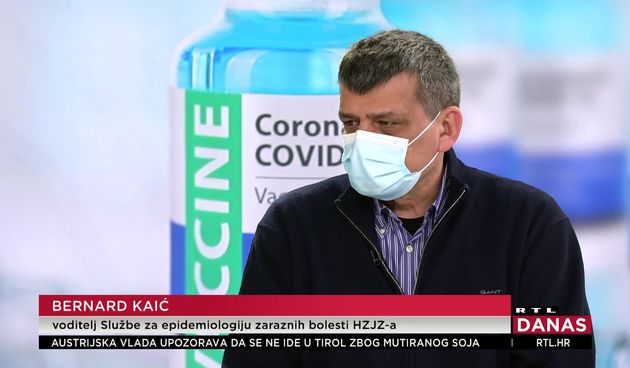 RTL screenshot
RTL screenshot
Later in the interview, the epidemiologist was asked “Due to skepticism towards AstraZeneca, many associations in (Croatia's) border areas plan to take pensioners to Serbia for vaccination. How smart is it to accept such an arrangement?”
The epidemiologist replied; “My only fear is that such organized trips do not turn into corona-trips so that people do not get infected on the way back and forth and do themselves harm. I would wait.”
The three vaccines for which Croatia is currently expecting deliveries are now not the only vaccines available. Speaking in a discussion on the same evening on another Croatian media outlet, HRT, Zlatko Trobonjača, an immunologist from the Rijeka Clinical Hospital, spoke about the Russian vaccine.
"Our country is obviously following the EU and its decisions,” he said. “The EU has entered into talks with Russia. It can be expected that these talks will continue. It is a quality vaccine, it provides high protection.”
"As for the quality of the vaccine, we can see that it is not harmful and it could be used in our country. The EU is oriented towards Western companies. And now, they (the companies) did not stick to the agreement," Trobonjača said, adding that he would be vaccinated with the first vaccine that was made available to him.
Jutarnji List: Croatian Cafes Open on Monday 15 February (and Gyms too)?
February 2, 2021 – The wait is over! In less than two weeks, Croatian cafes and gyms will open, if infection numbers continue on their current downward trajectory
With the spring season just around the corner, people will soon be able to once again enjoy coffee on the sun-filled daytime terraces of Croatian cafes. If Coronavirus infection numbers continue on their current downward trajectory, Croatian cafes and gyms will open on Monday 15 February. All businesses will still have to operate under strict epidemiological measures.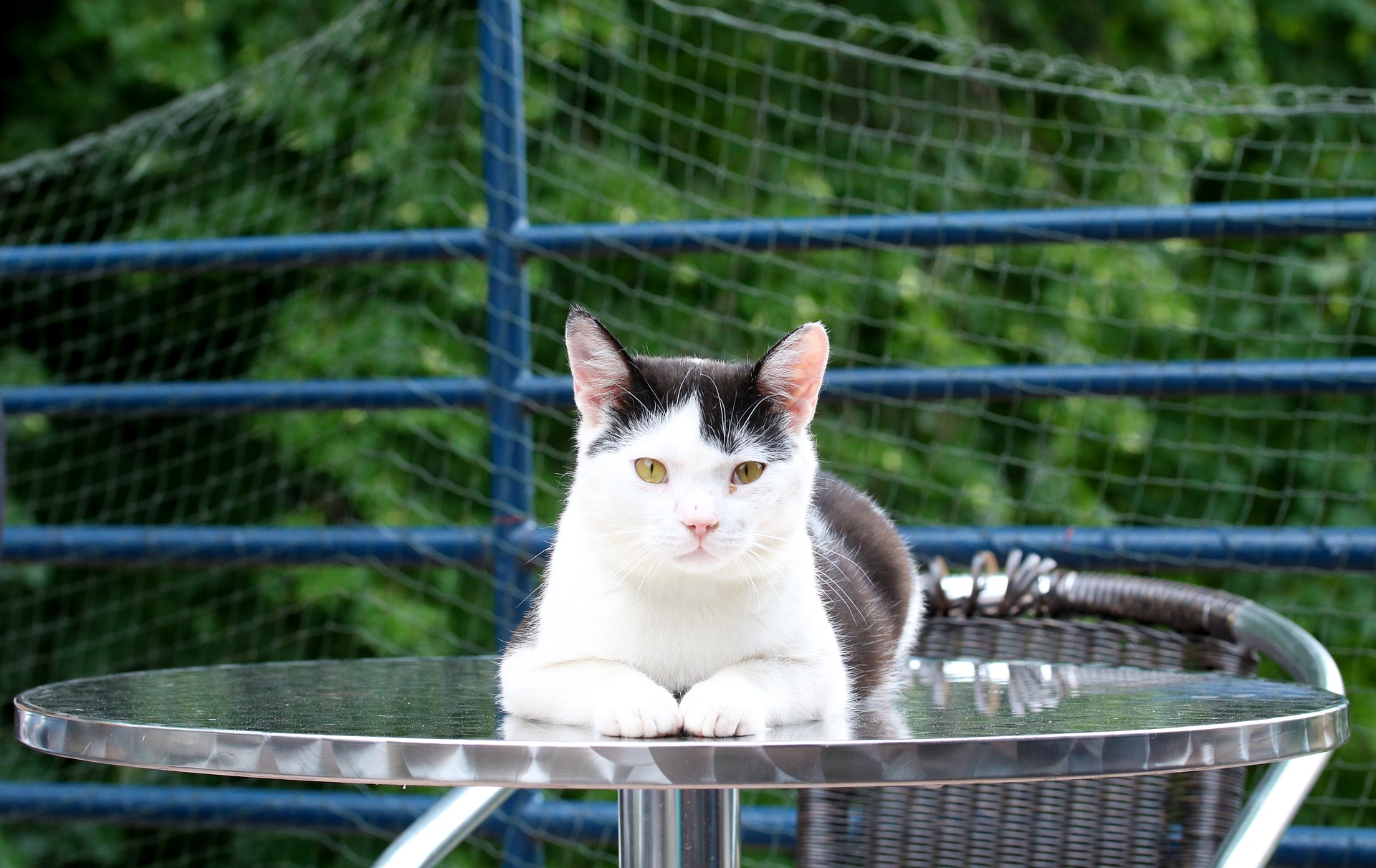
Deputy Prime Minister and the Chief of Staff, Davor Božinović, spoke about the forthcoming concessions on Croatian cafes and gyms, but a fuller picture of how the concessions will actually look was discovered unofficially by Croatian daily Jutarnji List. It was published in the evening of Monday 1st February 2021. The good news soon travelled across Croatia. It will come as a great relief to many independent business owners who have not been allowed to operate.
Business owners have been increasingly on edge over recent weeks, with protest openings of Croatian cafes and gyms threatened to take place in defiance of the current ban on operations (indeed, some did). Owners of Croatian cafes were particularly irked by the seeming inconsistencies in current measures – fast food outlets, gas service stations and bakeries were all permitted to sell coffee to go. People took advantage of this and thereafter congregated on the streets outside such businesses to enjoy their drinks. But, Croatian cafes were still not permitted to service people wishing to drink on outside terraces in almost exactly the same manner.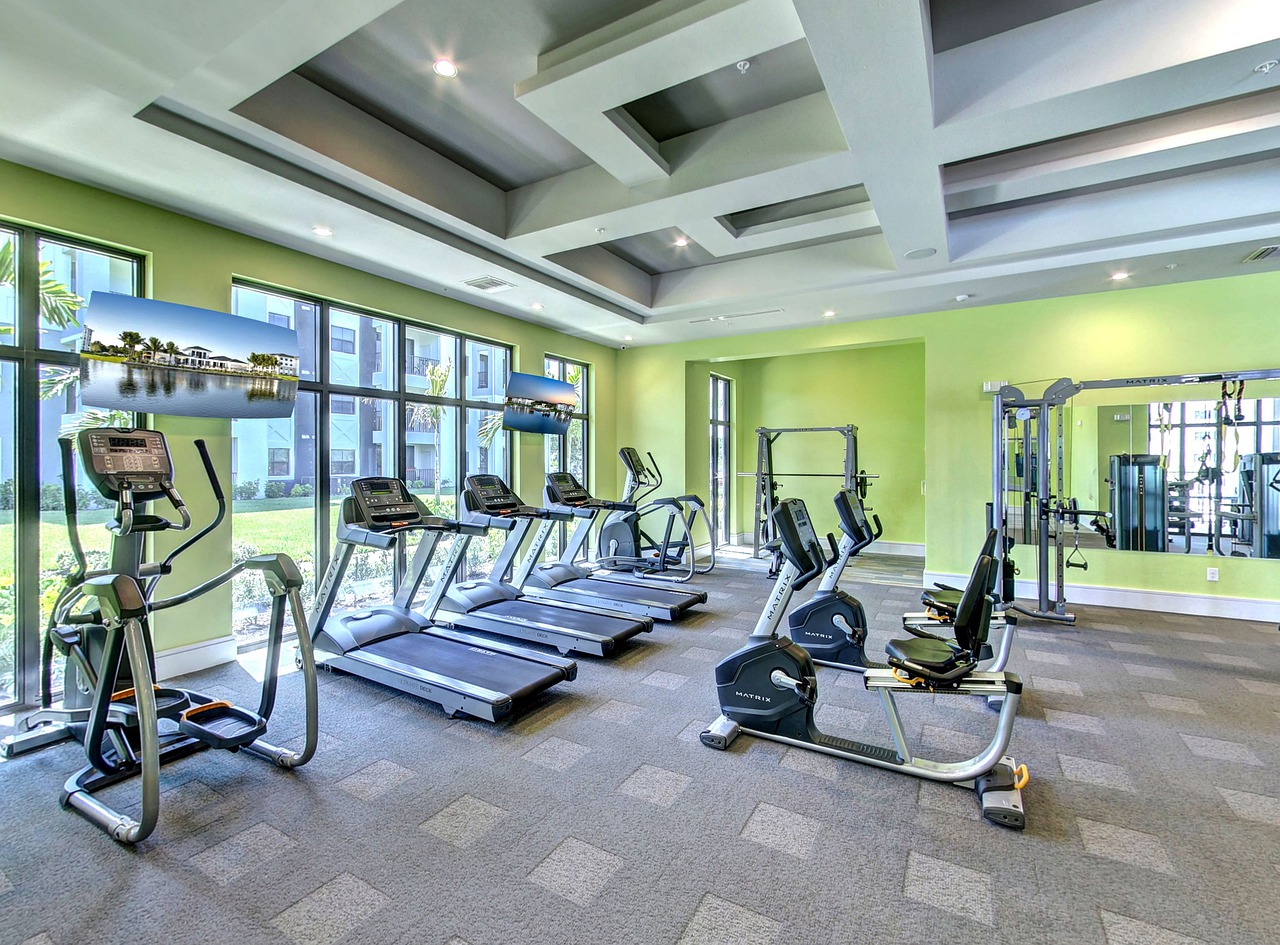
Monday 15 February has long been announced as the next review date for the imposed Coronavirus measures. But, until now, nobody was certain in which way – if any – measures would be relaxed.
Under unofficial plans, from Monday 15 February Croatian cafes will be able to serve coffee and drinks to be consumed on outside terraces, with strict epidemiological guidelines in place.
Croatian cafes and gyms opening on 15 February will be conditional on a continued downturn in infection numbers and the absence of new Coronavirus strains appearing in Croatia
The re-opening of Croatian cafes and gyms is wholly dependent not only on the continuing downturn in numbers of infected but also on the condition that new strains of Coronavirus - specifically those first detected in the UK and South Africa - do not appear in Croatia between now and then.
"If the indicators are good, if the numbers go down, we will certainly not be reluctant to react,” Deputy Prime Minister Davor Božinović said, regarding the 15 February review, “our aim to strike a balance between everything - with an emphasis on health care - has brought us to a position where Croatia has the least stringent measures in the EU."
Coronavirus infection numbers in some other European territories remain at an alarmingly high rate, although a corresponding relaxation in measures for some regions of Italy was similarly announced over recent days. This is the second time since the start of the pandemic that stricter measures imposed by the Croatian government – and a widespread public observance of these measures and other guidelines - have successfully produced the intended results.


